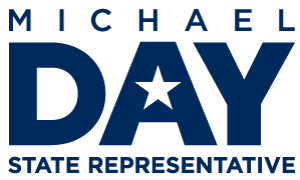Sea levels rose dramatically over the past century as changes in our climate melted ice at our North and South Poles. If we do nothing, within 30 years we can expect high tides to permanently rise above land currently occupied by residents in Boston, Cambridge and Quincy. The flood plains of the Mystic and Aberjona Rivers will greatly expand, further displacing residents from Everett to Burlington. Those “once in a century storms” that seem to ravage us every few months now will increase in both ferocity and frequency.
Climate change is here, and there is no rational debate about the threat it poses to our lives.
While there is no single magic bullet that can reverse its impacts, there is a growing sliver of light piercing through these dark storm clouds. We are now acting on multiple levels in an effort to make up for decades of ignorance and neglect. Individuals from all walks of life continually and successfully push our state and local governments to implement policies that will both combat climate change and deal with its impacts. I am proud to elevate these voices in the State House and I will continue to do so as we take important steps forward.
This session the House of Representatives passed a number of impactful bills, and more are coming. For example, our “2050 roadmap” bill plots the course for Massachusetts to reach net zero greenhouse gas emissions within those next 30 years referenced above. We also voted to establish “GreenWorks,” a comprehensive plan to provide our hometowns with the resources necessary to implement climate resiliency programs and measures that will create a more sustainable Commonwealth for all. We will soon consider and debate a bill I filed that can serve as a national model to curb the amount of non-recyclable materials dumped into Massachusetts by global plastics manufacturers.
On the local level, I am proud to support efforts to make the new Stoneham High School the most environmentally-responsible project in Massachusetts and to encourage the town to continue to fully implement its “net zero” policies. I also applaud and hope to scale up Winchester’s wildly successful “WinPower” program and replicate it in other communities.
Since its inception in 2017, WinPower has provided competitively priced “green” electricity options to Winchester residents and businesses. Offering three levels of “green energy” options, WinPower starts with a base option including ten percent more renewable energy in its supply than currently offered commercially. As a result, in less than three years the base WinPower plan has added almost ten million additional renewable kilowatt hours to the grid which is the equivalent of removing the carbon pollution from 700 cars from the road in a single year. The most beneficial plan, WinPower 100, uses only renewable energy and greatly increases the development of green infrastructure in our region. Large-scale adoption of WinPower 100 would lower residential carbon emissions, which now account for 76% of the town’s total emissions, by 30%.
I will continue to partner with local and state actors to aggressively plan for and combat the rising climate emergency we all face. We all have a role to play in this fight, and I urge you to contact me with your thoughts and to share the steps you are taking so that we can all move forward together.
For more information on WinPower visit: https://winpowerma.com/



You must be logged in to post a comment.